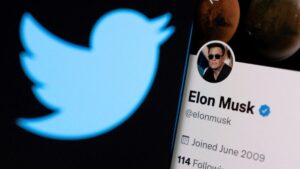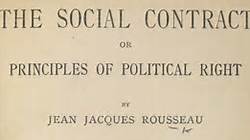The fallout from the Elon Musk’s purchase of Twitter is all over the news and a story about Musk demanding hardcore work from his employees brought to my mind the concept of reciprocity.
The idea of reciprocity is fairly simple. If you do me a favor, I feel an obligation to return that favor. It’s sort of like a personal version of the Social Contract I wrote about a while back. In this case, Musk is asking his employees to work considerably harder, whatever that means, in order to save the company.
The Reactions
While reading comments, I found that reactions largely come in two flavors. The majority of people argue hard work is expected and if the employees don’t like it, tough. Get out. On the other hand, some argue that overworking your employees is not a recipe for a successful company.
Does Musk ask for Reciprocity without Giving it?
My thoughts are probably closer to the second group but my real problem with Musk’s ultimatum is simply the expectation of reciprocity. I’m of the opinion Musk has a long record of working his employees hard and taking more than the lion’s share of the profits for himself.
He fired nearly four thousand Twitter employees largely without bothering to even look at the work they do. He fired people without notice. He implemented policies that ended doing far more harm than good.
I see no evidence Musk will reward hard-working employees who work enormous hours of overtime. If, by some miracle, Twitter begins to turn a profit, Musk will take most of the money for himself.
Working Hard with Reciprocity
Don’t get me wrong. If you work for a struggling company and have confidence the owner will work with you, reward you for your efforts, pay you when profits return; I’m all for working extra hard. If you don’t believe your boss will do so, all you’re doing is giving the boss your money. Your time is money, your money, not the boss’s money. Yours. A boss who tells you that you must work extra hours without pay and doesn’t plan on giving you a reward at the end of the day is stealing from you.
Working Hard without Reciprocity
It’s hard for me to imagine anyone thinking Musk is the sort of person who gives reciprocity. He threatened the same work hard or go bankrupt scenario with SpaceX not long ago. He ran SolarCity into bankruptcy. The much-famed Hyperloop is now abandoned along with all the people who poured their hard work into it.
The Boring company is a mess. The Gigafactory in Germany is largely unable to start because of water issues of which he was warned, long in advance. I could go on.
Conclusion
I am not telling Twitter employees how to react to this offer. That’s their business. If they believe Musk will eventually reward them for working long hours, if they think said work can somehow save Twitter, have at it. They have families, obligations, quitting is not an easy thing to do.
I’m just saying, if you give something, the other party isn’t obligated to reciprocity. In this case, I wouldn’t expect it.
Tom Liberman

